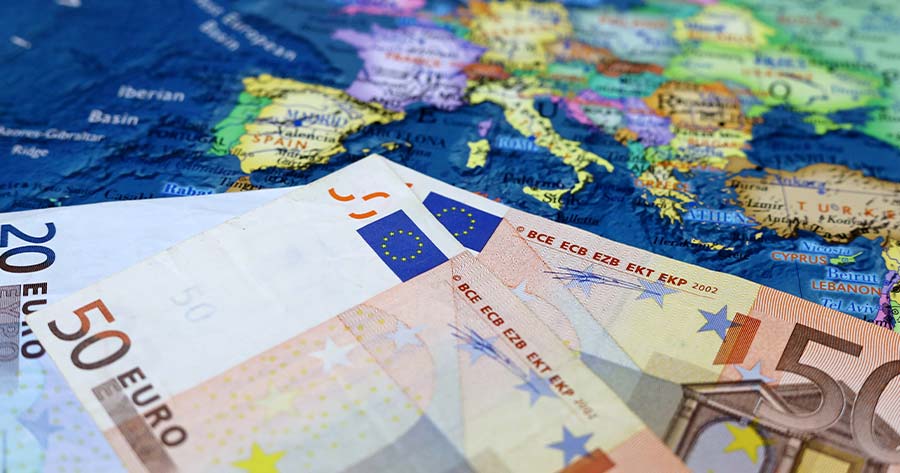Euro zone headline inflation unexpectedly climbed to 2.6% in July, as reported by the European Union’s statistics agency on Wednesday. This rise occurred despite a slight easing in price growth within the services sector.
In June, inflation had dipped to 2.5% from May’s 2.6%. Economists surveyed by Reuters had projected July’s figure to remain unchanged at 2.5%.
Core inflation, excluding volatile components like energy, food, alcohol, and tobacco prices, reached 2.9% in July, surpassing Reuters’ estimate of 2.8%. This figure was consistent with June’s core inflation rate of 2.9%.
Meanwhile, services inflation registered at 4% in July, a decrease from June’s 4.1%.
Several key euro zone countries, including Germany and France, experienced a marginal uptick in harmonized inflation. Both countries saw inflation rise from 2.5% in June to 2.6% in July.
The recent inflation data follows the release of the zone’s second-quarter GDP figures, with the EU statistics office reporting 0.3% growth during the period, surpassing economists’ estimated 0.2% growth. This growth occurred despite a 0.1% contraction in Germany, the euro zone’s largest economy.
The upcoming days will see investors evaluating how this new data could influence the European Central Bank’s stance on potential future interest rate adjustments. The ECB, which maintained rates in its recent meeting following a reduction in June, kept the possibility of another cut in September on the table.
The ECB Governing Council emphasized that decisions would be based on inflation dynamics, monetary policy transmission strength, and not committed to a specific rate path.





